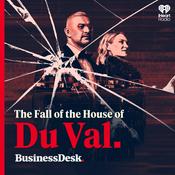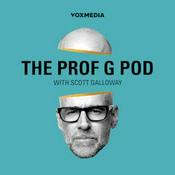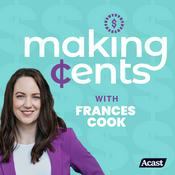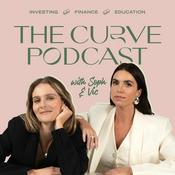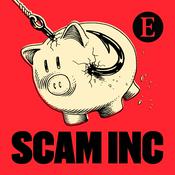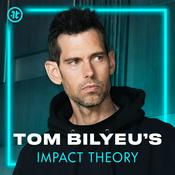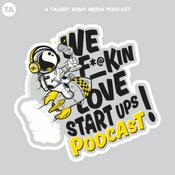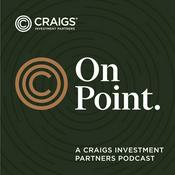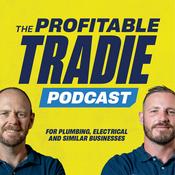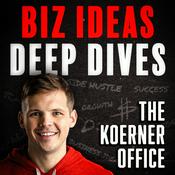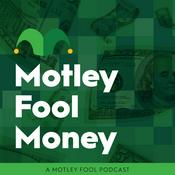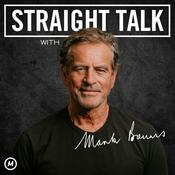Radical Candor: Communication at Work
205 episodes

From Optimism to Reckoning: Reflections on Silicon Valley with Steven Levy 7|43
10/12/2025 | 37 mins.
The early internet was built on big hopes—access, openness, connection, and the belief that technology could make the world fairer. In this episode of The Radical Candor Podcast, Kim & Jason are in conversation with Steven Levy. His recent article, “I thought I knew Silicon Valley. I was wrong.”, becomes the lens through which they revisit tech’s early promise and its reality today. They take an honest look at the optimism that shaped Silicon Valley’s early culture and how those ideals unraveled. Kim & Steven candidly share their unique perspective of how it feels to recognize the gap between what they believed and what actually happened as two people who had a front row seat. If you’re looking for a thoughtful, grounded, and honest conversation about how tech’s story was written—and rewritten—in real time, and what today’s leaders can learn from examining both intention and impact, this episode offers clarity and perspective you can apply right now. Get all of the show notes at RadicalCandor.com/podcast. Episode Links: "I Thought I Knew Silicon Valley, I was Wrong" About Steven Levy Steven Levy's Newsletter Steven Levy's Books "Virtual Love" by Kim Scott "Enshittification" by Cory Doctorow "The Age of Extraction" by Tim Wu Connect: Website Instagram TikTok LinkedIn YouTube Bluesky Chapters: (00:00) Introduction Kim, Jason, and Steven set the stage for a reflective look at Silicon Valley’s promise and reality. (01:39) “I Thought I Knew Silicon Valley. I Was Wrong.” Steven shares what led him to write the article and how his perspective shifted. (03:38) From Idealism to Influence: When Tech’s Culture Shifted Exploring the moment Silicon Valley’s playful, rebellious spirit hardened into something more powerful—and less accountable. (06:30) Recalling the Internet We Hoped For Revisiting the early optimism that shaped the web and the disillusionment that followed. (12:27) The Claims of AI Examining the bold promises tech leaders make about AI—and why skepticism matters. (15:01) The Long Tail Early optimism about the internet’s potential to democratize opportunity. (16:56) Enshittification & The Age of Extraction Cory Doctorow’s framework, antitrust debates, and how market consolidation reshaped the online ecosystem. (20:05) Do a CEO’s Values Matter? A look at how leaders like Mark Zuckerberg and Jeff Bezos have evolved—and what that means for their companies. (24:37) What to Do When You Don’t Align With Your Company Reflecting on how to stay true to your values when the culture around you shifts. (29:36) Looking Back with Clearer Eyes Kim reckons with past choices, blind spots, and what accountability looks like now. (32:29) What Corrupted Silicon Valley When too much money and power are concentrated in too few hands. (33:56) Conclusion Learn more about your ad choices. Visit megaphone.fm/adchoices

The Fixable Framework : Solve Real Problems Quickly, Without Breaking Relationships with Frances Frei & Anne Morriss 7|42
03/12/2025 | 46 mins.
How do you fix what’s not working without losing trust in the process? On this episode of The Radical Candor Podcast, Kim and Amy talk with beloved Harvard Business professor Frances Frei and her wife, CEO and bestselling author Anne Morriss, about why speed and care aren’t opposites — and how the right sequence of actions can help you go faster and strengthen relationships along the way. Anne and Frances break down the five-day framework behind their book Move Fast and Fix Things, share real stories from coaching leaders and teams, and explain why so many of us misdiagnose the problems we’re trying to solve. They also walk through their “trust triangle” — authenticity, logic, and empathy — and reveal how understanding your own “wobbles” can help you communicate more clearly, lead with confidence, and create momentum without leaving people behind. Get all of the show notes at RadicalCandor.com/podcast. Episode Links: Transcript Get a Copy of "Move Fast and Fix Things" Learn more about Anne & Frances Listen to the Fixable podcast Connect: Website Instagram TikTok LinkedIn YouTube Bluesky Chapters: (00:00) Introduction (01:49) The Why & Origins of Move Fast and Fix Things Frances and Anne explain how speed and care can work together. (05:03) Monday: Start by Diagnosing the Right Problem Why so many leaders fix the wrong thing—and how to avoid it. (07:38) The Velvet Coffin The Dangers of moving too slowly (12:55) How to Solve the Right Problem Approaches to use to get to the true problem (15:49) Coaching Effectively A real world story of getting to & solving the correct problem. (19:09) The Trust Triangle: Logic, Empathy, Authenticity How trust wobbles show up and what to do about them. (30:55) Wednesday, Thursday, Friday The remaining steps in the framework (32:09) Dealing with Bosses How to speak truth to power using the trust triangle and scripts (38:30) Scooby Snacks Examples of positive feedback (42:44) Conclusion Learn more about your ad choices. Visit megaphone.fm/adchoices

Why We All Need a Curiosity Check With Jeff Wetzler 7 | 41
19/11/2025 | 46 mins.
Difficult conversations don’t get easier by avoiding them—but they can get better when you prepare for them by getting curious. On this episode of The Radical Candor Podcast, Kim talks with Jeff Wetzler, author of ASK, about how staying curious helps us understand what others are really thinking and feeling. Jeff walks us through the curiosity curve and explains how to move into greater curiosity to reduce misunderstandings, deepen trust, and make space for more honest, helpful conversations—at work and at home. If you’ve ever faced a moment where you weren’t sure how to start, what to say, or how someone might react, this episode offers simple tools to help you connect with care and communicate with greater clarity. Get all of the show notes at RadicalCandor.com Episode Links: Transcript Jeff Wetzler Book | Ask Article | The Right Way To Prepare for High Stakes Conversations Jason Rosoff : Get Curious Not Furious | YouTube Connect: Website Instagram TikTok LinkedIn YouTube Bluesky Chapters: (00:00) Preparing for High Stakes Conversations Jeff and Kim chat about why curiosity is essential for high stakes conversations (03:17) The Curiosity Arc Jeff introduces the sections of the Arc (12:34) The Curiosity Check Checking in to see where you are and where you want to be (18:16) How to Move Along the Arc Jeff explains head, heart, and hand-based ways to move along the Arc (27:06) Letting Go The importance of exhaling and letting go of the agenda in leadership (31:34) Dialectical Behavioural Therapy Kim & Jeff discuss the use of DBT (32:43) Checking Someone Else’s Curiosity Level Jeff explains how to help others get curious (37:56) Curiosity and Candor Kim explores why curiosity is essential to candor (41:54) Conclusion Learn more about your ad choices. Visit megaphone.fm/adchoices

How to Be Remarkable: Growth, Grit, and Grace with Guy Kawasaki 7 | 40
05/11/2025 | 1h 3 mins.
When it comes to making a real difference, being remarkable isn’t about fame or titles—it’s about how you show up for others and yourself. Kim and Amy are joined by Guy Kawasaki—chief evangelist at Canva, bestselling author, and host of the Remarkable People podcast—to talk about what it really means to be remarkable. Guy shares stories from his book Think Remarkable and reflects on how growth, grit, and grace can help us create meaningful work and stronger relationships. From learning to embrace imposter syndrome, to saying “yes” when opportunity knocks, to finding joy in unexpected places (like surfing and parenting), Guy offers practical guidance for anyone who wants to make a difference. Tune in and discover how to bring more meaning—and more remarkable moments—into your life. Get all of the show notes at RadicalCandor.com Episode Links: Transcript Guy Kawasaki Books | Guy Kawasaki Guy Kawasaki's Remarkable People Podcast Think Remarkable | Guy Kawasaki Guy Kawasaki | Substack Is There Better Than Better | Ellen Langer Developing a Growth Mindset with Carol Dweck Mindset | Carol Dweck Kim Scott: The Power of Radical Respect and Candor | YouTube The Problem With Passion 3 | 9 | Radical Candor Beyond 'Sorry': How to Apologize and Mean It 6 | 22 | Radical Candor Remarkably Candid: Insights from Guy Kawasaki 6 | 31 Connect: Website Instagram TikTok LinkedIn YouTube Bluesky Chapters: (00:00:00) Introduction Amy and Kim introduce Guy Kawasaki, chief evangelist, author and host of the Remarkable People podcast. (00:03:02) Power of Saying Yes Guy discusses his “say yes" philosophy and its impact on his career. (00:06:54) What It Means to Be Remarkable What it means to be remarkable and how everyone can make a difference. (00:09:26) Being Remarkable with Jane Goodall The story of Jane Goodall writing his foreword and being on the podcast. (00:16:04) Growth Mindset & The Right Environment How the right environment is crucial for fostering a growth mindset. (00:20:59) Passion, Interests & Ikigai The value of exploration and interests over forced passion. (00:24:05) Get Interested in Your People Lessons from taking up kids’ interests and parallels to leadership. (00:29:43) Dealing with Stereotypes Personal experiences and learning to respond with humor or candor. (00:37:40) Bridging Viewpoints Understanding opposing perspectives by asking how instead of why. (00:42:02) Grace, Grit, & Growth Connecting with Stacey Abrams and her alignment with Guy’s book. (00:47:07) Overcoming Imposter Syndrome Advice on recognizing and overcoming imposter syndrome. (00:53:45) Making Decisions Right Focus on making decisions right, not making the right decisions. (00:55:52) Lessons in Motivation A story about mistaken identity and unexpected sources of motivation. (01:00:40) Conclusion Learn more about your ad choices. Visit megaphone.fm/adchoices

Why Knowing Your Core Values Makes You a Better Leader—and How to Discover Them with Robert Glazer 7|39
15/10/2025 | 53 mins.
How do you stay true to your values when the pressure’s on? On this episode of The Radical Candor Podcast, Kim and Jason talk with Robert Glazer, author of The Compass Within, about what it really means to live and lead by your core values. Robert shares how storytelling helps bring his framework for discovering and defining core values to life. Together, they explore how understanding what truly drives you can strengthen trust, simplify tough decisions, and help you authentically lead with care and conviction — even when it’s uncomfortable. If you’ve ever wondered how to find your direction, make confident choices, and lead without losing yourself, this conversation is your compass. Get all of the show notes at RadicalCandor.com Episode Links: Transcript Order The Compass Within Core Values Discovery Course The Six Core Values Questions Robert's Newsletter: Friday Forward Connect: Website Instagram TikTok LinkedIn YouTube Bluesky Chapters: (00:00) A New Chapter for Radical Candor Jason shares an update on the podcast’s new twice-a-month format (00:48) Meet Robert Glazer Kim and Jason introduce Robert, his book The Compass Within, and the idea of values as a leadership compass. (03:09) Why Values Matter Why defining your personal values is essential for authentic leadership and decision-making. (07:45) The Inverse Test How frustration and discomfort can reveal your true core values. (13:26) From Trust to Reliability Kim and Robert explore how words like “trust” and “integrity” mean different things—and why clarity matters. (21:30) The Six Questions Framework Robert shares his practical process for identifying and validating your core values. (27:22) The Cost of Integrity Kim reflects on a time when staying true to her values came at a cost—and why it was worth it. (41:20) Living Your Values Robert reveals his own core values and how they connect to Radical Candor’s idea of “respectful authenticity.” (49:12) Closing Reflections How knowing your compass—your values—can help you lead with clarity, care, and conviction. Learn more about your ad choices. Visit megaphone.fm/adchoices
More Business podcasts
Trending Business podcasts
About Radical Candor: Communication at Work
Listen to Radical Candor: Communication at Work, Prof G Markets and many other podcasts from around the world with the radio.net app
Get the free radio.net app
- Stations and podcasts to bookmark
- Stream via Wi-Fi or Bluetooth
- Supports Carplay & Android Auto
- Many other app features
Get the free radio.net app
- Stations and podcasts to bookmark
- Stream via Wi-Fi or Bluetooth
- Supports Carplay & Android Auto
- Many other app features

Radical Candor: Communication at Work
download the app,
start listening.




